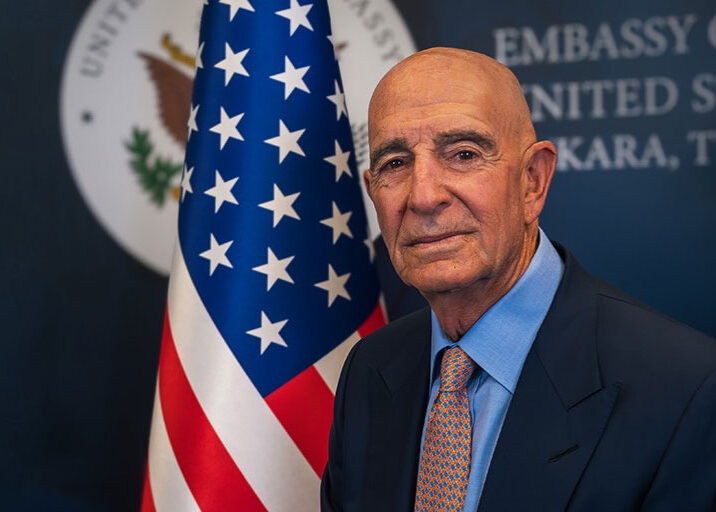The United States has proposed managing the disputed transport corridor between Armenia and Azerbaijan, aiming to facilitate the peace process.
Speaking at a press briefing in New York on July 11, U.S. Ambassador to Turkey Tom Barrack revealed that Washington is offering to take control of the 32-kilometer route—known as the Zangezur Corridor to Azerbaijan—under a 100-year lease.
“They are arguing over 32 kilometers of road, but this is no trivial matter. It has dragged on for a decade,” Barrack said. “So what happens is that America steps in and says: ‘Okay, we’ll take it over. Give us the 32 kilometers of road on a hundred-year lease, and you can all share it.’”
While Armenia and Azerbaijan reached a preliminary peace agreement in March, key sticking points remain, chief among them the corridor that would link mainland Azerbaijan with its exclave, Nakhichevan, via Armenia’s southern Syunik Province.
Azerbaijan has pushed for the route to be outside of full Armenian jurisdiction, citing concerns over guaranteed access. Armenia, in turn, rejects the use of the term “Zangezur Corridor,” viewing it as an irredentist claim on its sovereign territory.
Yerevan has also opposed any third-party control over the corridor, further complicating negotiations. Despite this, the U.S. proposal envisions a neutral American logistics operator managing the route to ensure transparency and shared usage.
According to a recent Carnegie Endowment report, the proposal mirrors a previously floated EU plan and draws on international precedents, such as oversight mechanisms in Georgia’s breakaway regions. The plan would ensure both security for Azerbaijan and respect for Armenia’s sovereignty.
Barrack’s remarks confirm that the Trump administration had already discussed the idea of a private U.S. operator serving as a guarantor.
A regional source familiar with the talks told Middle East Eye that Turkey was the first to suggest the involvement of a neutral company approved by both sides.
Meanwhile, diplomatic momentum around the peace process has continued. On June 20, Armenian Prime Minister Nikol Pashinyan made a rare visit to Istanbul to hold talks with Turkish President Recep Tayyip Erdogan, in what Yerevan described as a “historic” step toward regional peace.
Shortly after, Pashinyan and Azerbaijani President Ilham Aliyev held their first-ever direct meeting without international mediators. The bilateral talks, which took place in Abu Dhabi, focused on confidence-building measures and ways to finalize a comprehensive peace agreement.
However, disagreements remain. “The Armenian side demanded that the company also operate on the Nakhichevan side, which was unacceptable for Baku,” the Middle East Eye source said.
The report by Middle East Eye also suggests Turkey has been encouraging Azerbaijan to move forward with the peace deal, pointing to shifting geopolitical trends, including Iran’s waning regional influence.
Turkey’s own normalization with Armenia is closely tied to the peace process.
Middle East Eye also reports that Turkish companies see Armenia as a key link in the “Middle Corridor” project, which aims to connect Turkey to Central Asia via the Caucasus. Infrastructure investments in Armenia could follow if tensions ease.


